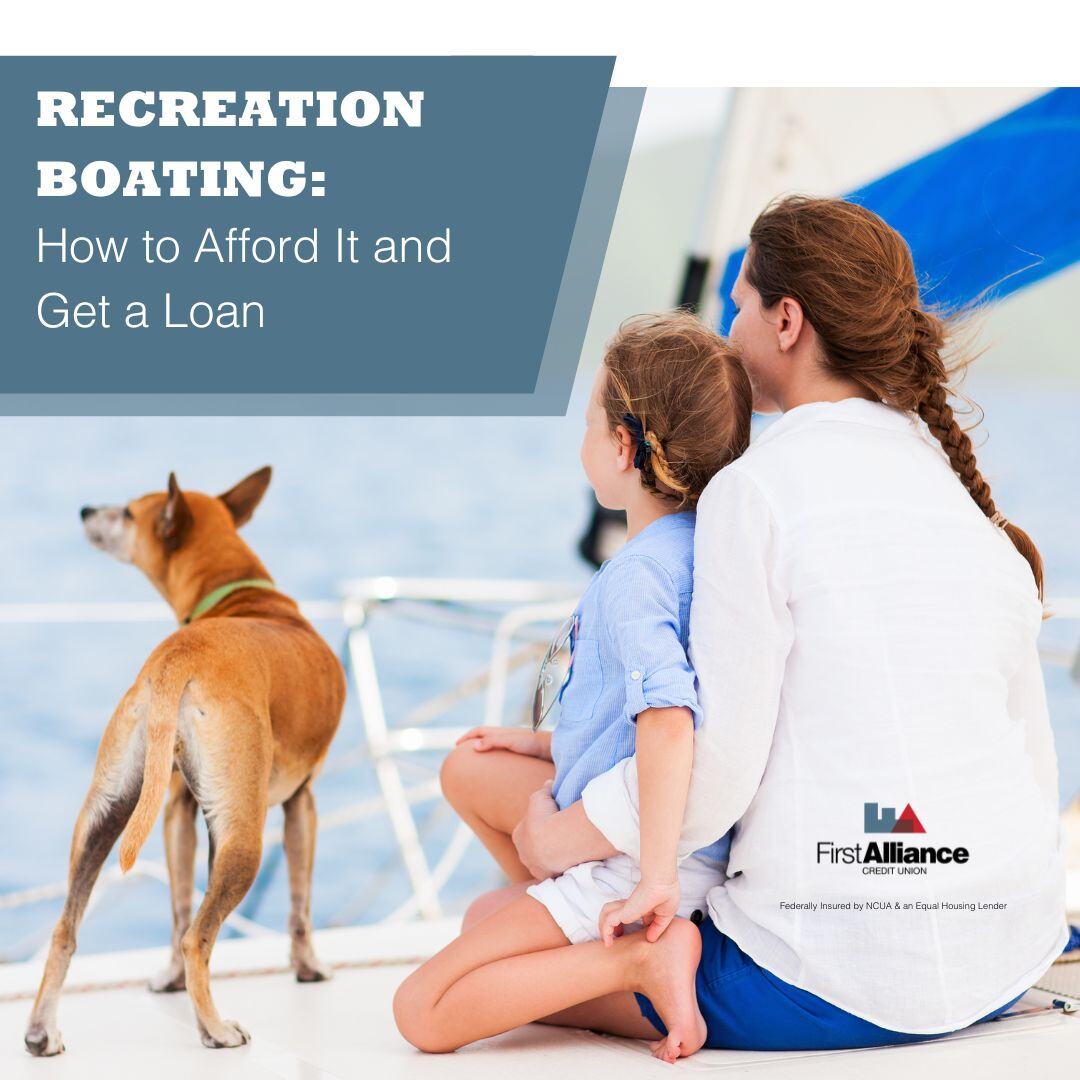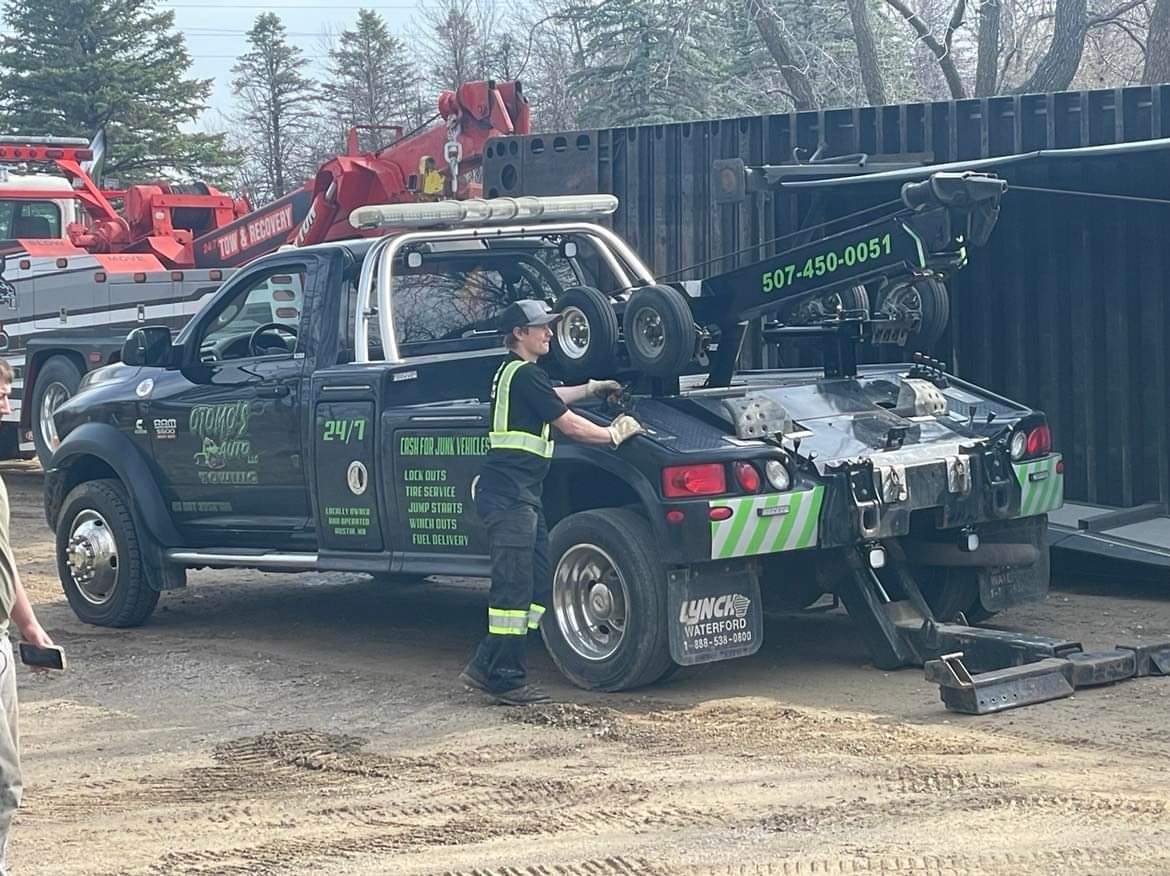How Otomo Towing Boosted Their Company With a Business Equipment Loan
Logan Otomo decided to create his own towing company in Austin, MN three years ago because it let him do the things he liked the most.
6 min read
 Kamel LoveJoy
:
Jul 9, 2024 5:30:00 AM
Kamel LoveJoy
:
Jul 9, 2024 5:30:00 AM

Recreational boating is a dream for many Minnesotans who yearn to enjoy the open water with friends and family. However, affording a boat, particularly when you're in the early stages of your career, can seem challenging. Here’s a friendly guide on what a recreational boat is, how boat loans work, typical loan terms, strategies to avoid boat loans, and more.
A recreational boat, or rec boat, is any watercraft used primarily for personal enjoyment. This includes a wide variety of boats such as fishing boats, speedboats, sailboats, and small yachts. These boats are perfect for leisure activities like fishing, cruising, water sports, and relaxing on the water.
Imagine you’re with your friends on a sunny weekend, casting lines into the water from your fishing boat, or perhaps you're zipping across the lake on a sleek speedboat. Recreational boating offers a unique blend of adventure and relaxation, making it a popular pastime for many.

Boat loans are similar to auto loans in that the boat itself serves as collateral. If you fail to make your payments, the lender can repossess the boat. Here’s a breakdown of how boat loans typically work:
You’ll usually need to make a down payment between 10% and 20% of the purchase price, though some lenders might offer loans with no down payment as an incentive. For example, if you're looking to buy a boat worth $20,000, you might need to put down $2,000 to $4,000 upfront.
After the down payment, you'll make fixed monthly installments over a set term, which can range from 4 to 20 years depending on the lender and the cost of the boat. For instance, if you take out a loan of $18,000 (after a $2,000 down payment) at an interest rate of 6% for 10 years, your monthly payment would be approximately $200.
Traditional boat loans are secured loans, meaning the boat is collateral. This often results in a lower interest rate but comes with the risk of repossession if you miss payments. Secured loans usually have better terms and lower rates compared to unsecured options like personal loans.
Besides traditional boat loans, there are other financing options:
These personal loans are usually unsecured, so you don’t have to worry about repossession. However, they typically come with shorter repayment terms and higher interest rates than secured boat loans. For example, you might get a personal loan at 10% interest for a term of 5 years, which would result in higher monthly payments compared to a secured loan.
These Home Equity Loans use your house as collateral, often resulting in lower interest rates. However, they can have high closing costs, and failure to repay could lead to foreclosure. Suppose you have equity in your home and take out a $20,000 home equity loan at a 4% interest rate over 15 years; your monthly payments would be around $148. While the payments are lower, the risk to your home is significant.
A HELOC is another way to leverage your home’s equity. It functions like a credit card, allowing you to borrow up to a certain limit and pay interest only on the amount you use. This can be a flexible option for purchasing a boat. For example, you could open a $30,000 HELOC with a 5% interest rate, use $20,000 to buy a boat, and make interest-only payments initially, with the option to pay down the principal over time.
At First Alliance Credit Union we can do HELOCs or Home Equity loans (HE) for the purchase of a boat. However, we do have boat loans specifically for this kind of purchase. With our reasonable rates, we recommend the recreational loan (boat loan) over any alternative loans because boat loans don't have any closing cost like a HELOC or HE. This saves our members extra upfront cost.
Boat loan rates & terms can vary widely depending on the lender, the boat, and your creditworthiness. Here’s what you can typically expect:
Loan terms can range from 4 to 20 years, much longer than standard auto loans due to the higher cost of boats. Longer terms mean lower monthly payments but more interest paid over the life of the loan. For instance, a $20,000 loan over 10 years at a 6% interest rate results in monthly payments of $222, while the same loan over 20 years would have payments of about $143 but more total interest paid.
Average boat loan interest rates in mid-2022 started at 5% to 7% APR for buyers with excellent credit. However, your rate will depend on factors like your credit score, the boat's price, the amount you're borrowing, and the down payment. If your credit score is high, you might secure a loan at 5%, whereas a lower credit score might see rates closer to 10% or higher.
It’s crucial to run the numbers on what a loan would cost you in terms of monthly payments and total interest charges. Don’t forget to factor in additional ownership costs like maintenance, insurance, storage, marina fees, and equipment.
For example, if you’re planning to buy a boat for $30,000 with a loan at 6% interest over 15 years, your monthly payment would be about $253. Add in maintenance ($1,000/year), insurance ($500/year), and storage fees ($1,200/year), and your monthly cost of owning the boat could easily exceed $400.
Yes, you can get a loan for a used boat. However, there are some important considerations:
Loans for older boats might come with higher interest rates due to the increased risk to the lender. For example, while a new boat might get a 5% interest rate, an older boat could see rates around 7% or higher.
Some lenders may have restrictions on the age of the boat they're willing to finance. For instance, a lender might not finance boats older than 10 years. It’s crucial to check with potential lenders about their policies on used boat loans.
Suppose you find a used boat for $15,000 and you’re able to secure a loan with a 7% interest rate over 7 years. Your monthly payments would be approximately $225. While this might be affordable, consider the additional costs of potentially higher maintenance for an older boat.
Your credit score plays a crucial role in determining your eligibility for a boat loan and the interest rates you’ll receive. A higher score typically leads to better loan terms. Let's explore the preferred credit scores lenders look for and the possibilities with lower scores.
Many lenders prefer a credit score of 700 or above for boat loans. A higher credit score generally means lower interest rates and better loan terms. For example, with a score of 750, you might get an interest rate of 5%, whereas a score of 650 might result in a rate closer to 8%.
It’s possible to get a loan with a lower score, but expect higher interest rates. For instance, with a score of 650, you might secure a loan at 8%, making your monthly payments higher and increasing the total cost of the loan.
Securing a boat loan can be more challenging compared to other types of loans, primarily due to the higher costs associated with boats. However, understanding the process and knowing what lenders look for can significantly improve your chances. Let’s compare it to getting an auto loan to see the similarities and differences.
Because boats are generally more expensive than cars, qualifying for a boat loan can be more challenging. However, the process is similar to applying for a car loan, with the lender considering your credit score, income, and debt-to-income ratio.
Eligibility requirements vary by lender, so it’s important to shop around. Some lenders may be more lenient, while others may have stricter criteria. For example, for our members we have very competitive Recreational Vehicle Loan Rates and might offer more flexible terms compared to a traditional bank.
Suppose you have a steady job with an income of $40,000 per year and a moderate amount of existing debt. A lender might approve you for a $20,000 boat loan with a good interest rate if your credit score is strong and your debt-to-income ratio is low. However, if your debt-to-income ratio is high, the lender might offer less favorable terms or require a larger down payment.

If taking on a boat loan seems too expensive or risky, there are other ways to get out on the water:
It might take some time, but saving up for a boat can help you avoid the interest and fees associated with loans. Set a monthly savings goal to build up your boat fund. For example, saving $200 a month could get you to a $10,000 boat in about 4 years.
Consider purchasing a used boat, which can be significantly cheaper. This could allow you to pay in cash and avoid financing altogether. For example, a $5,000 used boat might be a great starter option without the need for a loan.
Leasing a boat can come with lower monthly payments compared to buying. Be sure to understand any potential restrictions or limitations before leasing. Leasing might be a good way to enjoy boating without a long-term commitment.
Renting a boat occasionally might be a better option if you’re not sure how often you’ll use it. This can help you determine if owning a boat is the right choice for you. Renting allows you to enjoy boating on a budget and assess your true interest and usage before making a big financial commitment.
Affording a recreational boat is possible with careful planning and understanding your financing options. Whether you choose to take out a loan or save up, it’s essential to consider how a boat fits into your overall financial plan and lifestyle. By doing your research and weighing your options, you can make an informed decision and enjoy the many joys of boating. If you're considering a boat loan, speaking with a representative at First Alliance Credit Union can be an excellent step. They offer competitive rates and terms and can provide personalized advice to help you navigate your financing options. Don’t hesitate to reach out to them and take the first step towards making your boating dreams a reality.

Logan Otomo decided to create his own towing company in Austin, MN three years ago because it let him do the things he liked the most.
.jpg)
Buying a new house is exciting, but it’s easy to be swept up in the process and make a mistake that might cost you thousands of dollars. Fortunately,...

When you are struggling with large amounts of debts owed to multiple creditors, it’s understandable to want to ease the burdens and simplify your...